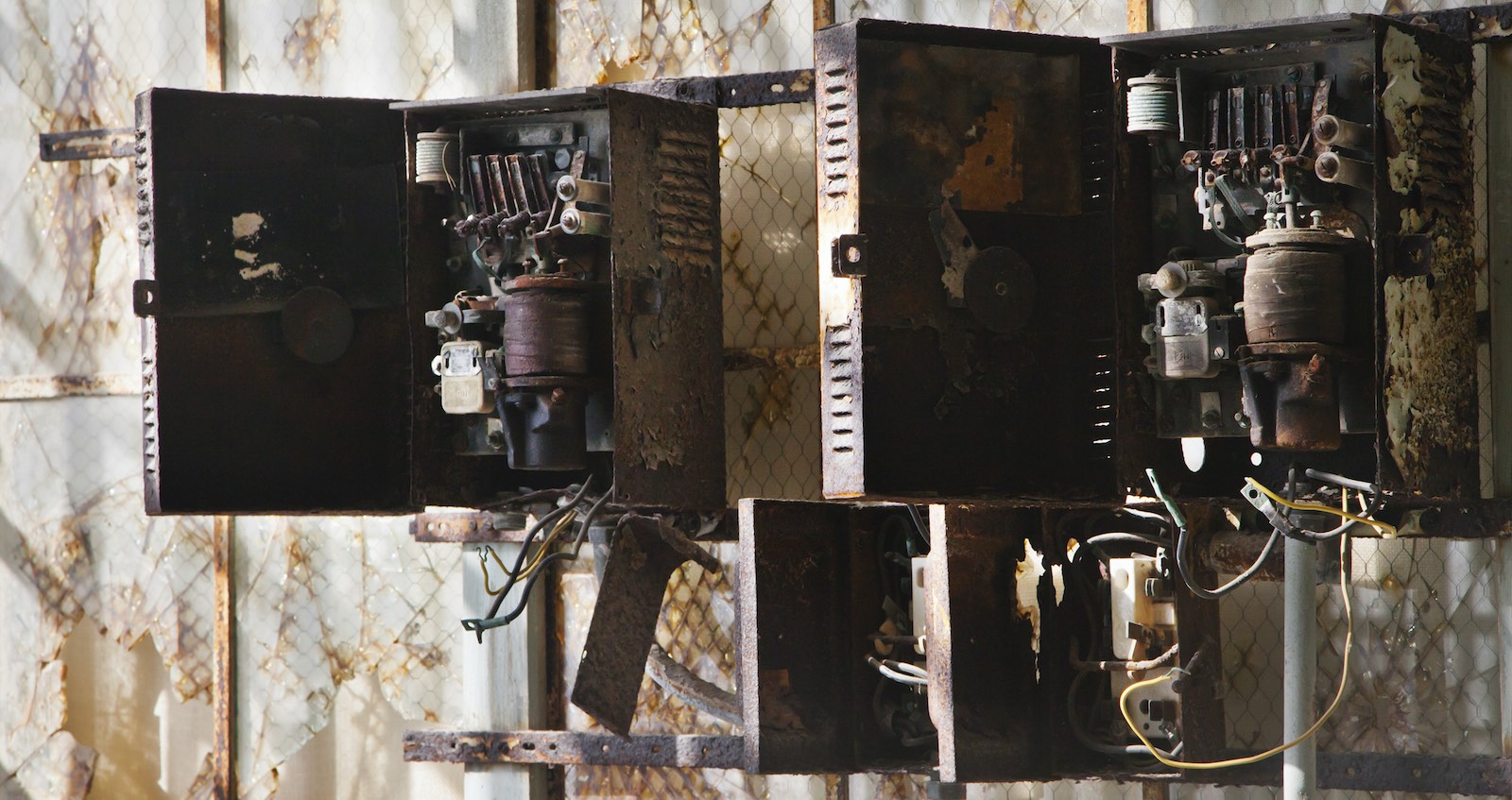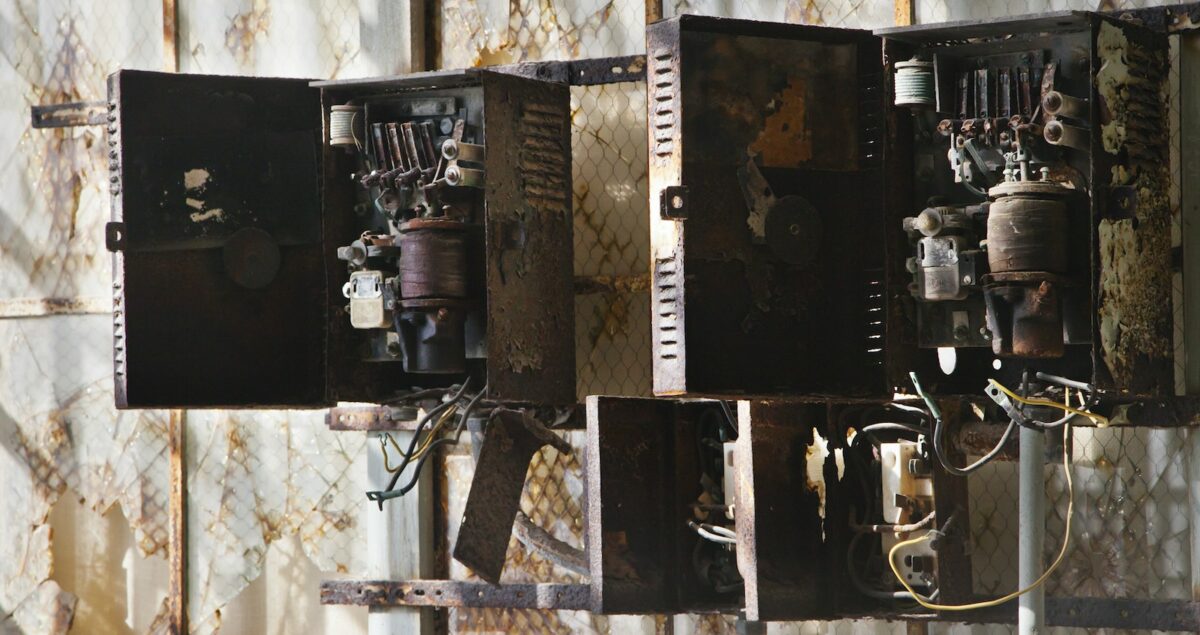
Introduction
Many homeowners are unaware of the possible dangers that come with living in an older home. While it may be charming, and full of character, old homes often need more maintenance than their newer counterparts. One such issue that can present a risk is outdated wiring. If you’re currently dealing with this problem in your home, don’t worry—there is a solution. In this blog post, we’ll explore the process of replacing old wiring in an old house. We’ll also provide some tips to make the process as smooth as possible. Stay safe and enjoy your beautiful home!
Should you rewire an old house?
As you probably know, the electrical wiring system throughout your home is the power source for all your appliances, equipment and lighting. In all homes, and especially older ones, this system and it’s wiring can deteriorate and require a replacement and/or upgrading of the equipment.
Deteriorating wiring can become a problem and even a fire hazard or shock risk. Sometimes homes need an electrical upgrade if there is an increased need that overpowers the current system which can’t meet the demand. Other factors include old wires that become exposed or short circuit, aging appliances, multiple electronic devices that require more power to run, or damaged cables and outlets.
Although it is difficult to determine exactly when a house should be rewired, there are some visual cues that also point toward this need. For example, clusters of lights not turning on, flickering lights, fluorescent light bulbs blowing out regularly, or surge protectors constantly tripping. Other signs of a needed electrical rewiring job are worn electrical outlets, overloaded circuit breakers and loose connections. Obviously, if you see old, damaged or chipped wires, it is time to replace them.
How often do you need to rewire a house?
A house normally requires rewiring every 20-25 years on average even if it has not been previously wired by a professional. Households that are old, use more electricity, have faulty systems or are built in older structures are likely to need rewiring more frequently. Further, households that use more electricity are likely to require rewiring more often.
What materials are needed to rewire a house?
A home rewiring project should not be undertaken lightly. It is vital that you have all the needed supplies before beginning this major home improvement task.
Rewiring a house requires materials to match up with existing electrical wiring in your walls, usually plastic or copper tubing. Wire nuts are also included in the list of materials necessary for home rewiring. The necessary tools and equipment needed to complete house rewiring project will vary depending on what type of material you are using:
- Plastic: Tongue-and-groove pliers, wire cutters and staples.
- Copper: Wire strippers, crimping tool and lineman’s pliers.
In order to complete a rewiring project you will need basic home improvement tools such as:
Hammer, screwdrivers (flat-head and Phillips), hacksaw with blade for metal, stud finder, ladder, socket wrench set with socket extensions.
It is important to note that many of the above tools and equipment should be used by a qualified and properly insured professional.
Can you rewire an old house yourself?
Rewiring an old house is different from building a new home or adding on to one. In older homes, the electrical wiring has been in place for some time and has been connected numerous times over the years. The connections aren’t always made properly and when they are connected correctly they may not be done to code. In addition, the wire itself might be used beyond its expected life span. Rewiring an older house is a job for a professional electrician because there are often things done in older homes that will confuse someone who’s unfamiliar with them.
How much does it cost?
Many variables contribute to the cost of rewiring a house such as square footage and how easy or difficult it is to access the space, but on average it will cost between $6 and $10 a square foot to rewire a house.
The costs for rewiring generally include labor and materials, but not new fixtures the homeowner might want to have installed by the electrician. A 1600-square-foot house typically ranges from $9,600 to $16,000 to rewire. A 2,000-square-foot house typically ranges from $12,000 to $20,000 to rewire.
Can you rewire a house while living it?
An electrical rewire can be a messy, disruptive job, and dangerous job. It is often recommended for you and your pets to be away from the house while rewiring so the workers can cut off power at the circuit breaker before starting the job.
It is possible to rewire a house without removing much, if any drywall. Having crawling space access like an attic or basement can make this easier as well.
Is rewiring a house covered by insurance?
Many homeowners policies cover electrical wiring through dwelling insurance. There are cases, however, when coverage may not apply. For example, when homes have old electrical wiring types like knob and tube or aluminum wiring, insurance companies may deny coverage.
How long does it take to rewire an old house?
When an electrician is called in to rewire your home, it can take a few days to one week on average for the crew of trained professionals to safely get the job done. When you hire an electrician to fix your home’s wiring, it can be a stressful experience. You’ll want them gone as quickly and painlessly as possible so that their work doesn’t disrupt daily life in any way.
Is it worth it to rewire an old house?
Although the cost to rewire a house might seem like an unfair burden when buying or selling property in today’s housing market, those who own homes with outdated wiring systems can find that this expense could be worth it. Replacing old electricity will help prevent fires and potentially add value for homeowners by providing new features such as energy-efficient light fixtures which may lower their monthly utility bill.
Do you need planning permission for old house rewiring?
It is imperative that you or your electrician knows your local electric and building codes. If you have any electrical work done on your home, it must be performed up to your local building code standards. These codes cover everything from what type of wire you can use, how many outlets, how much wattage, etc. you can install. If you don’t check these out first, you can create significant safety hazards or have to pull out work that’s already been done, which can cost thousands of dollars more in the end. This is an area where having a professional residential electrician who is an expert in these matters helps.
Conclusion
If you are in the market for a new electrical system or are considering updating your old one, be sure to call Milan Design + Build. We have years of experience in both residential and commercial wiring and would love to help you bring your home or office up to code. Not only do we offer quality workmanship, but we also guarantee our products and services. Give us a call today to schedule a consultation!

